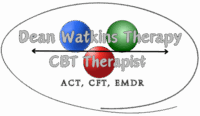Uncertainty Isn't the Enemy — But Our Response to It Can Be
If you find yourself stuck in overthinking, worrying about what others might think, or endlessly tweaking your work so it feels “just right,” you’re not alone. These are common experiences for people who struggle with self-doubt, anxiety, and imposter syndrome - and they often share a hidden source: uncertainty.
Not knowing feels risky. It can trigger a wave of unease, especially when it touches parts of life that matter to you: your performance, relationships, reputation, or sense of identity. When uncertainty feels tied to your worth or success, it doesn’t just feel uncomfortable - it feels dangerous.
Uncertainty Feels Risky and Makes You Feel Vulnerable
Imposter syndrome is a classic example of how uncertainty feels risky. You’re not just wondering whether your work is good enough, you’re also uncertain about how others will perceive it. Will they think you’re competent? Capable? Or will they see through you?
This kind of uncertainty makes you feel exposed - vulnerable to judgement, failure, or rejection. And when something feels uncertain and important, your mind interprets it as a threat. Cue the anxiety.
Anxiety Demands Two Things: Certainty and Comfort
Therapists Reid Wilson and Lynn Lyons summarise anxiety beautifully: “Anxiety demands two things—certainty and comfort.”
-
Certainty: I need to know everything will be okay.
-
Comfort: I need to feel okay—right now.
So we chase after both. We double-check, rehearse, seek reassurance, overwork, or avoid altogether. It feels like we’re trying to be responsible or prepared—but really, we’re trying to escape the discomfort that comes from not knowing.
The Real Struggle: Uncertainty + Discomfort
Here’s the paradox: uncertainty isn’t inherently a problem. We tolerate it all the time - when we try new foods, meet new people, or start watching a film without knowing how it ends.
What makes uncertainty difficult is the discomfort that comes with it: racing thoughts, physical tension, uneasiness, a sense that something bad might happen. It's this combination - uncertainty + discomfort -that fuels the urge to control, avoid, or fix.
Ambiguity Tolerance: A Skill You Can Build
This is where ambiguity tolerance comes in. It’s the ability to sit with not knowing - without immediately trying to get rid of it. It’s not about liking uncertainty, but about not letting it control you.
When you build this skill, you increase your psychological flexibility - the ability to respond to difficult thoughts, feelings, and situations in more adaptive ways.
How to Start Building Ambiguity Tolerance
You don’t have to become an expert in uncertainty overnight. But you can start with a few small shifts:
1. Pause and Notice Your Reaction
When something feels uncertain, ask yourself:
👉 “How am I responding to this?”
Are you avoiding? Reassuring yourself? Over-preparing? Naming your go-to reaction is the first step toward change.
2. Get Clear on What Feels at Risk
Not all uncertainty feels the same.
👉 “What am I afraid might happen?”
👉 “What’s the real discomfort I’m trying to avoid?”
This helps you see that it’s not just uncertainty - it’s what you believe it means.
3. Ask “How” Instead of “Why”
Borrowing from the psychologist Michael Yapko, asking “how” brings the focus to what you’re doing, not why you feel this way.
👉 “How do I usually handle this kind of uncertainty?”
👉 “How might I respond differently - just 5% more flexibly?”
4. Practice Small Acts of Uncertainty
Let a message sit in your outbox without rereading it 10 times. Say “I don’t know yet” instead of rushing to an answer. Each small act helps retrain your brain to tolerate discomfort without needing to eliminate it.
How This Helps With Imposter Syndrome and Self-Doubt
The more you practice tolerating uncertainty and discomfort, the less power imposter thoughts have over you. You no longer need to know that your work is perfect or feel 100% confident before submitting it. You’re more able to act even when doubt shows up.
You’re not chasing perfect certainty - you’re choosing to move forward with the uncertainty.
That’s where confidence is built.
Final Thoughts: The Power of Choosing How You Respond
You don’t need to eliminate uncertainty or discomfort to feel better.
You need to change your relationship with them.
Instead of asking, “How can I be sure nothing bad will happen?”, start asking:
👉 “How can I carry on, even when I feel uncertain?”
👉 “How can I gently allow discomfort, instead of resisting it?”
Because the truth is, the more you learn to tolerate uncertainty, the less control anxiety, self-doubt, and imposter syndrome will have over your life.
If you're tired of second-guessing yourself...
This is the kind of work we can do together. If you’d like support in building ambiguity tolerance, breaking cycles of overthinking, and developing more confidence in the face of uncertainty, you’re not alone—and you don’t have to figure it out by yourself.

